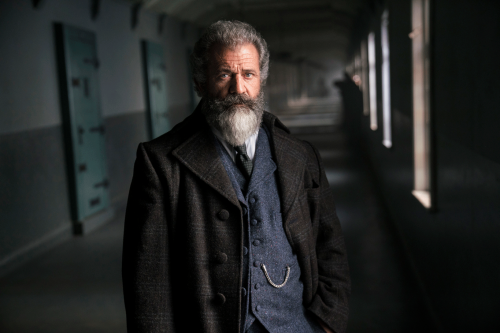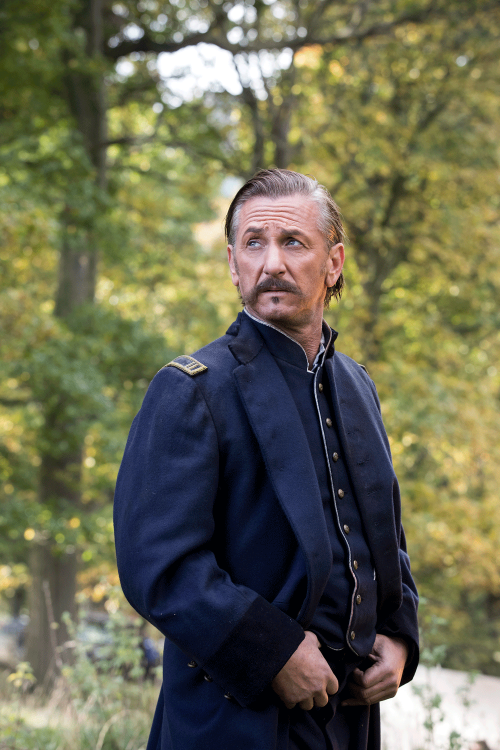The Professor and the Madman
1 April 2020
The solution to our problems doesn’t rest with us.

If you are tired, you can rest. If you are sick, you can go to the doctor. If you are struggling with someone, you can reason with them or, if nothing else, keep your distance. But what if the person who hates you is your own mind? Where can you escape to? The Professor and the Madman is a moving story about a mind at war with itself, and those who do more than look on.
James Murray, played by Mel Gibson, faces a monolithic task. It’s 1878 and Oxford University Press has been striving for years to complete the definitive dictionary of the English language. Yet its delegates remain dubious about how a Scotsman without a single degree can steer their august project. Murray might not be a professor, but his self-education is staggering. He has 23 languages at his command, from the familiar to the obscure. But will they be enough? The English world is awash with imports, jargon and idiom that desperately need defining. So, the Scotsman hits on a scheme to have that world mail him its contributions — a ‘dictionary by democracy’. What he doesn’t anticipate, though, is that his most prolific supplier will be the inmate of an insane asylum.
Enter William Chester-Minor. Sean Penn plays a retired American army surgeon who has fled to London in the hope of outrunning personal demons. He is convinced that a soldier from the civil war hunts him every night, bent on murder. In a fit of terror, he shoots an innocent father, and is committed to Broadmoor Asylum for the criminally insane. Chester-Minor’s life becomes a maze of horror and rage. However, the dictionary project offers a ray of hope. Through it he finds a true friend in Murray, and a path to purpose and peace — if the world will let him take it.
The revelation that Murray is working with a madman threatens to undermine the credibility of the entire project. Viewers will expect all sorts of clever arguments to be mounted by Murray at this point, arguing the equality of all men or the immensity of Chester-Minor’s contribution. Yet it’s actually his faith that takes centre stage. Instead of trying to argue the insane man’s merits, Murray offers his opponents the need that connects us all:
“What about repentance, what about redemption? What are you so afraid of — that a bad man could be redeemed? Is it not what we tell our children? What we whisper in their ears?”

We live in an age of increasing awareness regarding physical and mental health, but paradoxically mental illness remains as stigmatised as in Murray’s day. Rampant individualism has made us so confident of our ability to choose our paths that we cannot conceive of anyone who would ‘let themselves’ fall so far. Those who find their level on the streets are labelled bludgers. Even self-harm is unfairly associated with attention seeking. When will we realise that people contemplate suicide not because they want others to look, but because they are overwhelmed by society’s gaze and can no longer bear to look at themselves?
The Professor and the Madman demonstrates how our compassion can be blocked by our secret fears. The dread that there might be conditions that can defeat even our best self-discipline and determination terrifies us. So, like the lepers of antiquity, we drive these unsolvable problems to the margins of society where we can safely ignore them. What we fail to see is our shared problem.
One thing that made the historical ministry of Jesus Christ so controversial was its attractiveness to society’s least regarded. Some of his contemporaries claimed it revealed Jesus’ lack of standards; others that it was a proof of his own debauchery. Jesus’ response? He told people we’re all united by our need for God, but you need to see your sickness before you go searching for a cure.
Jesus said to them, “It is not the healthy who need a doctor, but the sick. I have not come to call the righteous, but sinners.”
It’s madness to think we can escape this world’s troubles, that we’ll never face a problem that a credit card couldn’t solve. But it’s brilliance to realise the solution to our problems doesn’t rest with us. Chester-Minor picks up from Murray’s language that he’s a God-fearing man. He thinks that explains his confidence. But Murray says the only qualification for the strength he’s drawing on is admitting to God he needs help:
Murray: It’s all by grace alone.
Chester: I wish I had experienced more of that.
Murray: You, will sir. You will.
No surprise that the man who ends up showing Chester-Minor God’s grace is the man who knows the value of it.

Comments
No comments yet - be the first.